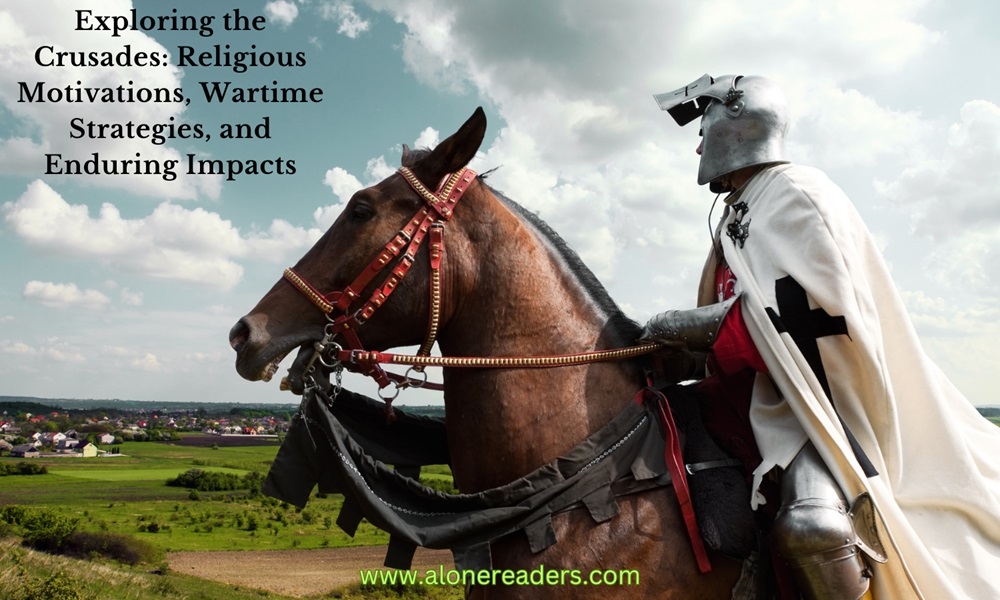
The Crusades, spanning from the late 11th to the late 13th centuries, stand out as one of the most significant and complex events in world history. These series of religious wars, primarily initiated by the Latin Church in the medieval period, were aimed primarily at recovering the Holy Land from Islamic rule. The Crusades had profound religious, social, and political impacts that extended well beyond their immediate period.
The inception of the Crusades was deeply rooted in religious motivations. The call to arms was a response to the Muslim conquests of Christian territories, including Jerusalem, a city sacred to Christians. Pope Urban II's call for the First Crusade in 1095 was not just a call to war but also a spiritual appeal to the Christian warriors of Europe. He promised spiritual rewards, including indulgences and even salvation, for those who took up the cross. This led to an unprecedented mobilization of warriors across Europe, driven by faith, the promise of heavenly rewards, and, for some, the lure of earthly riches.
The military aspect of the Crusades was marked by both remarkable victories and devastating defeats for the Crusaders. The initial success of the First Crusade, which led to the capture of Jerusalem in 1099, was a high point for the Crusaders. However, maintaining control over the Holy Land proved to be a significant challenge. The Crusader states, established in the wake of the First Crusade, were vulnerable and often reliant on support from Europe. The military tactics of the Crusaders evolved over time, from large, disorganized masses of troops to more structured and strategic approaches, including the establishment of military orders like the Knights Templar and the Knights Hospitaller.
The impact of the Crusades was far-reaching. In Europe, the Crusades had a profound impact on medieval society. They accelerated the process of centralization of power, as monarchs gained more control over their realms and their subjects. The Crusades also fostered a growth in trade between Europe and the Near East, leading to economic developments. European exposure to the advanced civilizations of the Islamic world during the Crusades brought about a transfer of knowledge, which played a role in the European Renaissance.
In the Islamic world, the Crusades left a legacy of distrust and animosity towards the West. The brutality of the Crusaders, particularly during the capture of Jerusalem, was long remembered. However, the Islamic response, under leaders like Saladin, was marked by a combination of military prowess and chivalrous conduct, which won admiration even from some of their Christian adversaries.
The Crusades also had a significant impact on the relationship between the Eastern Orthodox and Roman Catholic Churches. The sacking of Constantinople by the Fourth Crusade in 1204 deepened the schism between these two branches of Christianity. This event was a betrayal of the Crusaders' original purpose and left a legacy of bitterness that persisted for centuries.
Culturally, the Crusades had a lasting impact on the Western imagination. They inspired a vast body of literature, including chronicles, romances, and epic poetry, which shaped the medieval European perception of the knight as a Christian warrior and the ideal of chivalry. The Crusades also left behind architectural and artistic legacies, with the construction of castles and fortifications in the Holy Land and the integration of Eastern artistic styles into Western art.
In conclusion, the Crusades were more than just a series of religious wars; they were a pivotal event in world history that reshaped the medieval world. Their impact was felt in areas as diverse as religion, politics, economics, culture, and military tactics. The Crusades stand as a testament to the complexity of history, where faith, ambition, and human frailty all played a role in shaping the course of events. As we reflect on the Crusades, we gain insights not only into the medieval world but also into the enduring nature of human conflicts and the quest for understanding and reconciliation.